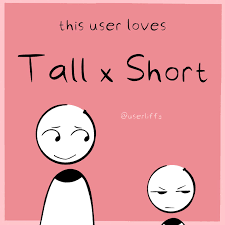Emily Henry and the charm and problems of romance tropes
- Patricia López

- Apr 5, 2021
- 3 min read
I’ve always been a little apprehensive about romance novels but there’s something about Emily Henry’s

novels that are the perfect amount of romance, the perfect amount of drama, and the perfect amount of cheesy. Originally, I learned about her books through social media (as one tends to do these days). It was a tweet that said something like “If you’re looking for a book that has academic rivals to lovers but she's the only one who hates him and he’s been in love with her since the day they met this is the book for you.” This was the description for Book Lovers, her debut novel published in 2020. Oddly specific, particularly intriguing. All the Goodreads reviews, comments, and descriptions kept on mentioning that: enemies to lovers, rivals to lovers. It was almost as if that was its biggest selling point. It didn’t matter the type of story, the author, the setting, the most important thing was that the trope enemies to lovers was included. And it seems like that’s enough to draw a lot of people in.
A trope is a recurring theme or plot device that is instantly recognizable to the reader. They are, in a way, clichés that have appeared in stories throughout the centuries. From "Friends to Lovers" and "Enemies to Lovers" to the age-old "Love Triangle," "Fake Relationship," and the captivating "Forbidden Love," these narrative frameworks have become woven into the fabric of storytelling. But as they continue to play their roles, there's a fine line between their allure and their potential to undermine the very essence of creativity and originality.
Not only do tropes define the essence of a particular piece of media, but they also hold a powerful grip on the minds of those consuming romantic content. This fixation seems to have emerged partly from the world of fanfiction, where romantic tropes are systematically categorized, tagged, and often magnified to the extreme. This intensified focus on specific dynamics fuels the desire to explore these relationships in countless variations. It's a way to categorize stories featuring familiar characters, allowing them to stand out in a sea of similar narratives. Alternate Universes (AUs) follows a similar path, branching stories into uncharted territories while retaining familiar characters and dynamics.
In the realm of fanfiction, tropes are already interwoven with established relationships. Readers dive in already invested in the characters and their connections, eager to see new facets of their dynamics. But in the broader realm of literature, this consumerist approach can sometimes stifle the true essence of storytelling.
The trend goes beyond literature, spilling into visual representation as well. There was a meme going around Twitter, which had artists drawing visual depictions of their romantic character “ship” dynamics. Anything you could imagine, mutual pining, rivals who actually admire each other, the flirty x serious, the angry x friendly, memory wipes soulmates who find each other again. Literally, anything and everything.
I get it, when you like something you look for things that are similar. In the age of labels, tags, and boxes, you also want to do that to content, to know what you want to read and what not. To filter things. This consumerist approach to stories, especially romance, feels rather flat and charmless to me. Why do we enjoy more the dynamic in and of itself rather than the writing or the characters? One of the most popular is the sunshine protector and the sunshine. But when does the line blur between a trope and an overused formula? Because at what point does “short” and “tall” become a trope or a dynamic?
Enter Emily Henry's novels, which masterfully dance on the delicate line between romance and cliché. The real challenge lies in reinventing these tropes, infusing them with new life while maintaining their relatability. As readers, we long for the comfort of the familiar while craving the excitement of the unknown. Striking this balance is the key to crafting modern romance novels that not only captivate but also transcend the limitations of cliché.
I like Henry's books, they feel like a warm hug from a friend at best and like a Netflix original you put on when there’s nothing else to watch at worst. With their easy readability, charming covers, and engaging plots, they seem to hit the sweet spot for many. However, as modern authors and publishers seek innovative ways to market novels, tropes have evolved into a double-edged sword. While they might attract attention and drive sales, they also risk overshadowing authentic chemistry between characters and the organic flow of their situations.
In a landscape where the heart of a story is often eclipsed by catchy titles and predictable dynamics, it's crucial to remember that true romance thrives on genuine connections and the unexpected. Tropes may be the vessels that carry us through the narrative currents, but it's the depth of emotion and originality that ultimately make a love story truly unforgettable.








Comments